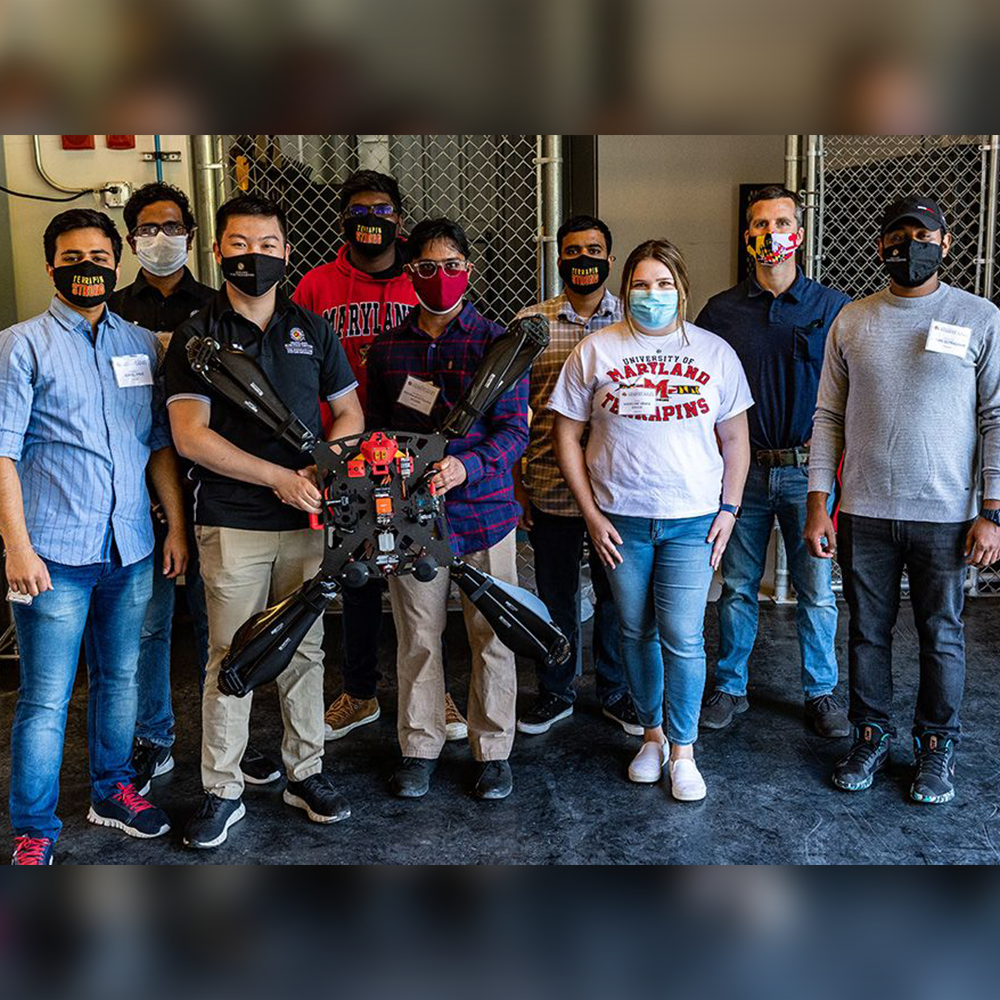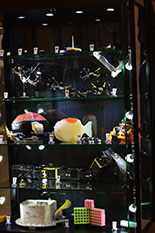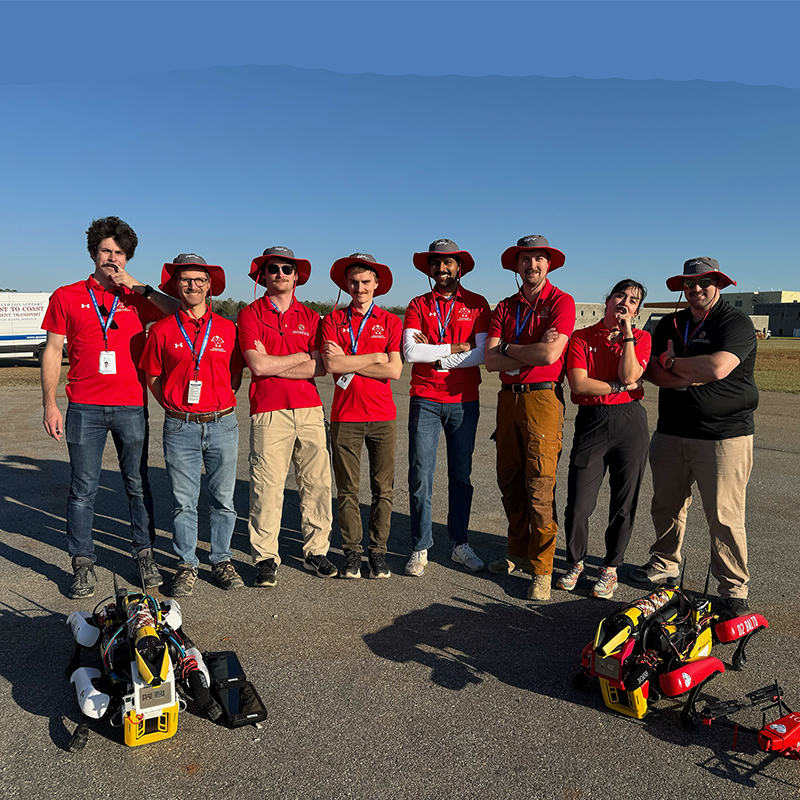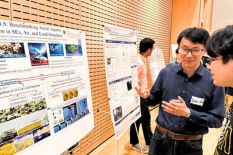News Story
MRC Seminar Series Starts with Jellyfish-Inspired Robotics
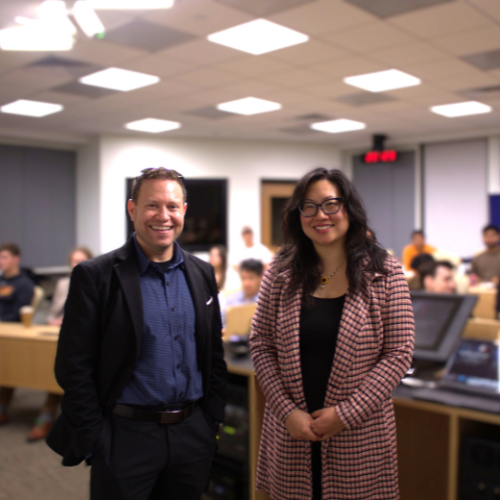
The Maryland Robotics Center kicked off its Fall 2025 Robotics Seminar Series on Friday, October 10, with a seminar by Dr. Nicole Xu, Assistant Professor at the University of Colorado Boulder. Her talk, Biohybrid robotic jellyfish and bioinspired vehicle designs for ocean exploration, introduced attendees to innovative approaches for navigating and exploring marine environments using biologically inspired technologies.
Dr. Xu presented a range of projects from her lab that blend laboratory experimentation, fieldwork, theoretical modeling, and computational fluid dynamics. One key focus was a biohybrid jellyfish robot that uses microelectronic systems to stimulate swimming in live jellyfish, both in controlled lab settings and open water. She also discussed synthetic sharkskin-inspired surfaces and robotic fish fins, which could extend the performance and longevity of underwater vehicles.
Looking ahead, Dr. Xu's team is exploring how tissue engineering could support medical and ocean applications by mimicking the capabilities of marine organisms. Her multidisciplinary work connects mechanical engineering, bioengineering, and robotics, offering new tools to monitor remote ocean environments and tackle real-world challenges.

Q&A Spotlight: Adira Leah Colton, Ph.D. Candidate, Bioinspired Advanced Manufacturing (BAM) Lab
Adira Leah Colton is a Ph.D. candidate in the Bioinspired Advanced Manufacturing (BAM) Lab at the A. James Clark School of Engineering. Her research bridges soft robotics and advanced microfabrication using a high-resolution 3D printing technique called Direct Laser Writing. One project focuses on designing a soft robotic catheter for minimally invasive infant heart surgery; the other explores glass microneedle fabrication for improving microinjection technologies. Following the seminar, we asked Adira to share her reflections on Dr. Xu’s talk.
What part of Dr. Xu’s talk left the biggest impression on you?
I had personally not heard much about biohybrid robotics. The ability for researchers to interface with the moon jellies in a way that was actually useful was very impactful, especially since Dr Xu clearly spent a significant amount of her career considering the ethical implications her of her work.
Her jellyfish and sharkskin-inspired projects cross several disciplines. How did that multidisciplinarity resonate with your own work?
Her utilization of the moon jellies as actuators resonated with me since I develop completely synthetic soft robotic actuators.
Did the talk spark any new research ideas or questions for you?
Two aspects of her talk sparked ideas for me. For her sharkfin-inspired robotics, I work in additive manufacturing and I immediately starting of thinking of what that new textures could be developed on the surface of her fins. In terms of the moon jellies, I started thinking about ways to manufacture a synthetic moon jelly; I did not get very far in this line of thinking, but during the Q&A session, she mentioned this as a potential future project.
How do you think UMD, and specifically ISR or MRC, benefits from having someone like Dr. Xu as part of its faculty?
Dr. Xu is doing work that I genuinely have not seen other researchers doing. Having faculty like her would enable MRC to be a part of novel developments that are very impactful.
What would you say to someone who missed the event about why this kind of research matters?
The ocean is so underexplored, and Dr. Xu's work presents a new opportunity to explore the ocean utilizing creatures that nature has already developed for that exact task.
Dr. Xu’s talk offered a compelling look at how biologically inspired engineering can enhance robotic design for ocean environments. Her work added valuable perspective to the seminar series and resonated strongly with students and researchers across disciplines. The Maryland Robotics Center looks forward to continuing these conversations throughout the fall.
Published October 23, 2025


